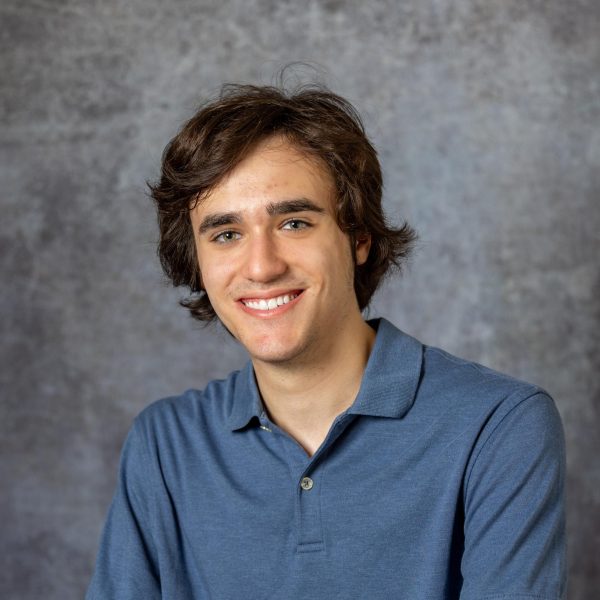The Wisconsin Book Festival hosted a panel discussion to commemorate Andrew J. Graff’s newest novel, “True North,” Feb. 28. “True North” is a tale following two characters explore the northern woods of Wisconsin as they face the floodwaters together in order to create a sustainable future for their family, the town and the pristine river upon which it all flows.
Nickolas Butler, a novelist and short story writer who graduated from the University of Wisconsin, moderated the event. Both Butler and Graff earned their masters in fine arts from the University of Iowa’s Writer’s Workshop. The Badger Herald spoke to both separately regarding their work and the efforts of aspiring authors at UW.
Graff, who is a professor of creative writing at Wittenberg University, primarily writes about how characters navigate their lives alongside whitewater rivers and the wilderness of Wisconsin.
Though many of his locations are fictional, Piers Gorge — a real gorge located in northern Wisconsin — is featured in his work entirely unaltered. Graff said his emotional connection to Piers Gorge prevented him from changing it in any way and said aspiring writers who wish to describe locations special to them should place the readers in the eyes of their past selves.
“When I wrote the first scene, in which the protagonist [is shown] the river, I felt like I was introducing guests to the river,” Graff said, relating to his work as a whitewater raft guide.
Butler, who often writes stories that transpire in rural Wisconsin, said though his works concern themes of friendship and love, he often does not think about the themes of his stories in advance.
The importance of plot and characters were emphasized and Butler said themes often develop alongside the events of a story.
“Themes arise organically or subconsciously during the writing process for every writer individually,” Butler said.
The Badger Herald spoke to both Graff and Butler regarding how one finds inspiration for the settings and narratives of their works.
Butler said anecdotes told by others often spark his imagination. He tends to develop the beginnings and endings of his stories quickly but takes time to consider the intermittent steps before he writes.
Graff said when it comes to writing a setting that motivates an author, the setting must be a place they enjoy writing about.
“If I’m going to spend another three years, five years, seven years working on a book, I want to be able to close my eyes and go somewhere that I want to go,” Graff said.
In addition, Graff, who prefers to write stories with positive emotional elements, said — in a similar vein to his settings — he enjoys visiting his works when they are generally enjoyable to be in. But, Graff said authors must be careful to create a spectrum between positive and negative events, so a story never feels unrealistically upbeat or bleak.
In regards to aspiring authors at UW, Graff suggested writers read “The Nature and Aim of Fiction,” by Flannery O’Connor. The piece contains the most essential advice for fiction writers, according to Graff.
Butler, meanwhile, said aspiring authors should read as much as possible. He said authors should enjoy reading for the sake of it and the process can provide them with numerous tools for their craft.
“[Writing] is a lifestyle and a craft … you don’t get into it for fortune and glory,” Butler said. “You get into it because you love books and you love writers.”
To best build a “toolbox” through reading various works, Butler said one should primarily read their favorite genres of books though also experimenting with what they experience. According to Butler, reading various genres can help one merge the various elements of each respective kind of work.
In addition, Butler said aspiring writers should find peer writing groups, regardless of if they are academic or not. Feedback and experiencing the works of other authors can help one develop their writing, according to Butler.
“Writing is such a lonely process … and sometimes you don’t know what the quality of other people’s writing really is,” Butler said.
Both Butler and Graff spoke regarding their struggles on their paths to becoming successful writers.
Butler said his realization he wanted to attend graduate school for his craft stemmed from seven to eight years of work that was neither profitable nor safe. He said his drive to move forward toward better work drove him to improve as an author.
Graff spoke during the event about works that he had developed over the years, yet were ultimately rejected by publishers. While he had to rewrite hefty portions of said works, Graff said it was an experience that helped him improve as an author.
“I did spend seven years working on a manuscript … but you gotta figure if you’re doing a job well as a writer you’re offering [both yourself and] the reader a livable experience,” Graff said.



